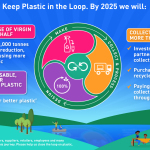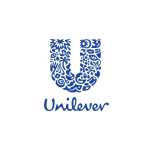Unilever Announces Ambitious New Commitments for a Waste-Free World
By 2025, the global consumer goods company will eliminate more than 100,000 tonnes of plastic packaging and collect and process more plastic packaging than it sells
LONDON & ROTTERDAM, Netherlands–(BUSINESS WIRE)–Unilever, owner of brands including Dove, Ben & Jerry’s, and Lipton, has announced ambitious new commitments to reduce its plastic waste and help create a circular economy for plastics.
Unilever has confirmed that by 2025 it will:
- Halve its use of virgin plastic, by reducing its absolute use of plastic packaging by more than 100,000 tonnes and accelerating its use of recycled plastic.
- Help collect and process more plastic packaging than it sells
This commitment makes Unilever the first major global consumer goods company to commit to an absolute plastics reduction across its portfolio.
Unilever is already on track to achieve its existing commitments to ensure all of its plastic packaging is reusable, recyclable or compostable by 2025, and to use at least 25% recycled plastic in its packaging, also by 2025.
Alan Jope, Unilever CEO, said: “Plastic has its place, but that place is not in the environment. We can only eliminate plastic waste by acting fast and taking radical action at all points in the plastic cycle.
“Our starting point has to be design, reducing the amount of plastic we use, and then making sure that what we do use increasingly comes from recycled sources. We are also committed to ensuring all our plastic packaging is reusable, recyclable or compostable.
“This demands a fundamental rethink in our approach to our packaging and products. It requires us to introduce new and innovative packaging materials and scale up new business models, like re-use and re-fill formats, at an unprecedented speed and intensity.”
Unilever’s commitment will require the business to help collect and process around 600,000 tonnes of plastic annually by 2025. This will be delivered through investment and partnerships that improve waste management infrastructure in many of the countries in which Unilever operates.
Jope added: “Our vision is a world in which everyone works together to ensure that plastic stays in the economy and out of the environment. Our plastic is our responsibility and so we are committed to collecting back more than we sell, as part of our drive towards a circular economy. This is a daunting but exciting task which will help drive global demand for recycled plastic.”
Ellen MacArthur, Founder, Ellen MacArthur Foundation, said: “Today’s announcement by Unilever is a significant step in creating a circular economy for plastic. By eliminating unnecessary packaging through innovations such as refill, reuse, and concentrates, while increasing their use of recycled plastic, Unilever is demonstrating how businesses can move away from virgin plastics. We urge others to follow their lead, so collectively we can eliminate the plastic we don’t need, innovate, so what we do need is circulated, and ultimately build an economic system where plastic packaging never becomes waste.”
Since 2017, Unilever has been transforming its approach to plastic packaging through its ‘Less, Better, No’ plastic framework.
Through Less Plastic Unilever has explored new ways of packaging and delivering products – including concentrates, such as its new Cif Eco-refill which eliminates 75% of plastic, and new refill stations for shampoo and laundry detergent rolled out across shops, universities and mobile vending in South East Asia.
Better plastic has led to pioneering innovations such as the new detectable pigment being used by Axe and TRESemmé , which makes black plastic recyclable, as it can now be seen and sorted by recycling plant scanners, and the Lipton ‘festival bottle’ which is made of 100% recycled plastic and is collected using a deposit scheme.
As part of No plastic, Unilever has brought to the market innovations including shampoo bars, refillable toothpaste tablets, cardboard deodorant sticks and bamboo toothbrushes. It has also signed up to the Loop platform, which is exploring new ways of delivering and collecting reusable products from consumers’ homes.
As part of today’s announcement, Unilever has posted a video on its website addressing the issue of ocean plastic and committing to play its part to ‘make the blue planet, blue again’. (https://www.unilever.com/news/news-and-features/Feature-article/2019/plastics-announcement.html)
Notes to Editors
Unilever’s plastic packaging footprint today is around 700,000 tonnes annually (including recent acquisitions).
The company is today making two commitments:
1) Reduce our virgin plastic packaging by 50% by 2025, with one third (more than 100,000 tonnes) coming from an absolute plastic reduction.
More than 100,000 tonnes will come from an absolute reduction as the business invests in multiple use packs (reusable and/or refillable), ‘no plastic’ solutions (alternative packaging materials or naked products) and reduces the amount of plastic in existing packs (concentration). Replacing non-recycled plastic packaging with recycled plastics will account for the remaining reduction. Unilever will measure the total tonnes of virgin plastic packaging used each year vs the total tonnes of virgin plastic packaging used in 2018. As a result of this commitment, Unilever is committing to have a virgin plastic packaging footprint of no more than 350,000 tonnes by 2025.
2) Help collect and process more plastic packaging than we sell by 2025.
Unilever’s commitment will require the business to help collect and process around 600,000 tonnes of plastic annually by 2025. This is less than our current 700,000 tonnes plastic packaging footprint because it reflects the 100,000 tonnes absolute reduction we have committed to above.
Unilever will deliver this commitment by:
- Investing and partnering to improve waste management infrastructure
- Purchasing and using recycled plastics in its packaging
- Participating in extended producer responsibility schemes where Unilever directly pays for the collection of its packaging
Unilever will measure the total tonnes of plastic packaging it has helped collect and process in a year vs. how much plastic packaging it has used.
Over the last five years, Unilever has collaborated with many partners to collect plastic packaging, including the United Nations Development Programme, to help segregate, collect and recycle packaging across India. In addition, it has helped to establish almost 3,000 waste banks in Indonesia, offering more than 400,000 people the opportunity to recycle their waste. In Brazil, Unilever has a long-running partnership with retailer Grupo Pão de Açúcar to help collect waste through drop-off stations.
Contacts
Media:
Catherine Reynolds
MediaRelations.USA@unilever.com
(201) 894-7760
Thank you for donating to DutchNews.nl.
We could not provide the Dutch News service, and keep it free of charge, without the generous support of our readers. Your donations allow us to report on issues you tell us matter, and provide you with a summary of the most important Dutch news each day.
Make a donation
